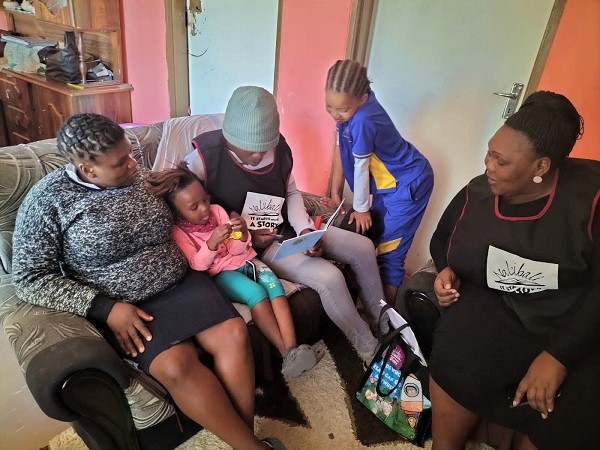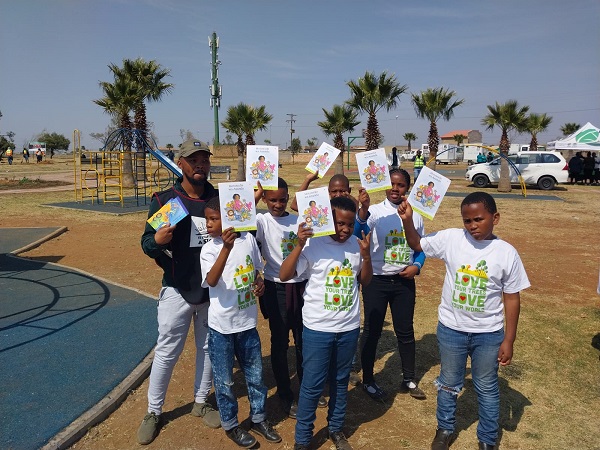A new family and community literacy programme from Nal'ibali – the national reading-for-enjoyment campaign – is tackling two of South Africa's biggest problems: illiteracy and unemployment in communities across the country.
Nal’ibali, South Africa’s reading-for-enjoyment campaign – has been promoting children’s literacy development nationwide since 2012. This is because the ability to read and write unlocks success in school and life, yet most South African children struggle to read and write.
Leaving the education system without the basic tools they need to get a job; they remain trapped in poverty. And, for those that do complete their school careers or more, job opportunities are few.

However, starting this September, a new partnership between Nal’ibali and the Industrial Development Corporation (IDC) sees the interrelated issues of literacy and job creation being tackled in <name of area> and across South Africa through the Social Employment Fund (SEF) – a part of the President’s plan to create jobs that contribute to the betterment of South African society.
The project has enormous transformative potential: through Nal’ibali it has provided immediate employment to 1 000 previously unemployed people, for two days a week. All recruits will receive on-the-job training and mentorship. It will also provide direct access to books, stories and literacy support to 20 000 children, 2 700 families and 450 early learning centres around the country, to ensure that children start school ready and excited to learn to read and write.
Of the 1 000 people employed through the Nal’ibali and SEF, 990 are working as part-time Literacy Facilitators in their communities, and 10 fill full-time administrative support roles to ensure the smooth rollout of the programme.

Once they graduate from training, Literacy Facilitators will visit families at home to give away reading materials and encourage parents to get more involved in their children’s early learning. In addition, they will host story sessions at preschools, run workshops for caregivers on how to read and share stories with children, distribute books and other literacy material to the broader community, and run community reading clubs.
“It isn’t by chance that Nal’ibali is bringing this programme to areas in which we are already working, largely through the support of unpaid volunteers in the community. Being able to offer paid work has been a huge motivating factor for the campaign in taking on a project of this size,” says Saleem Mukkudem, Chief Financial Officer at Nal'ibali.
“Sometimes we think ‘education’ has to happen at school or creche, that it has to be a formal thing, that you can’t educate a child unless you are educated yourself,” says Katie Huston, Head of Research, Impact and Innovation at Nal’ibali. “But in the first few years of a child’s life, most of their learning happens at home and in their community. And anyone can help a child to learn – even adults unable to read, can tell a story or share a book with a child by pointing at and talking about the pictures. This programme is designed to help parents and community members realise the power they already have, with simple everyday activities and things they have in their homes, to help all children reach their potential.
Nal’ibali is one of 26 organisations in South Africa helping to roll out the Social Unemployment Fund. In total, 50 000 jobs will be created, all of which must be accessible to those who are unemployed, without formal education or previous work experience.
